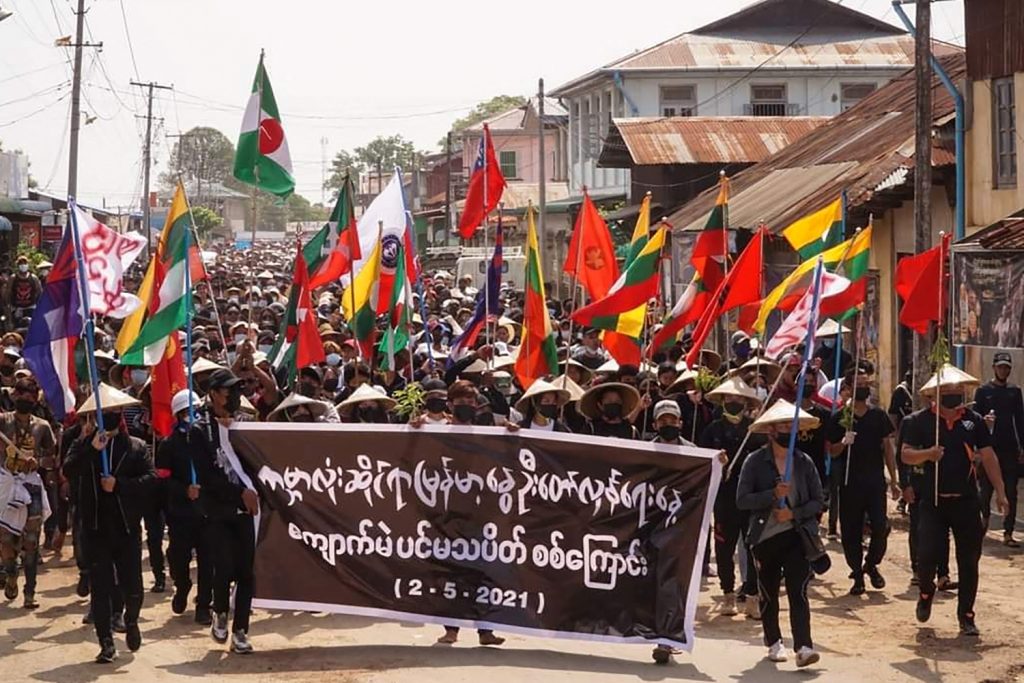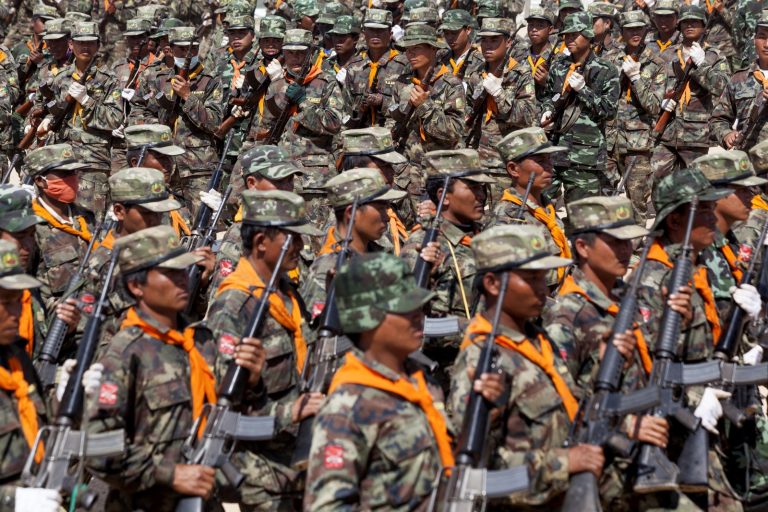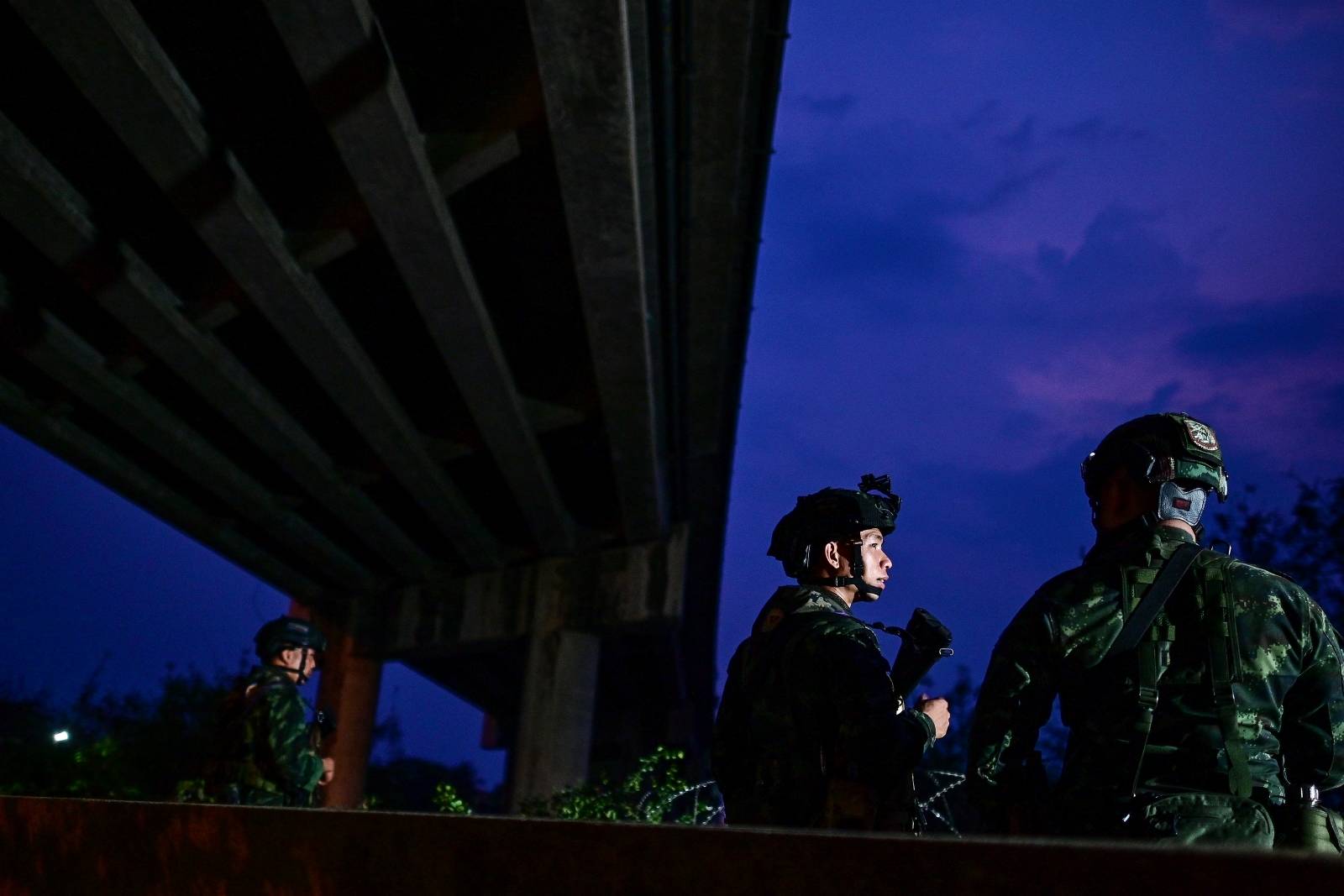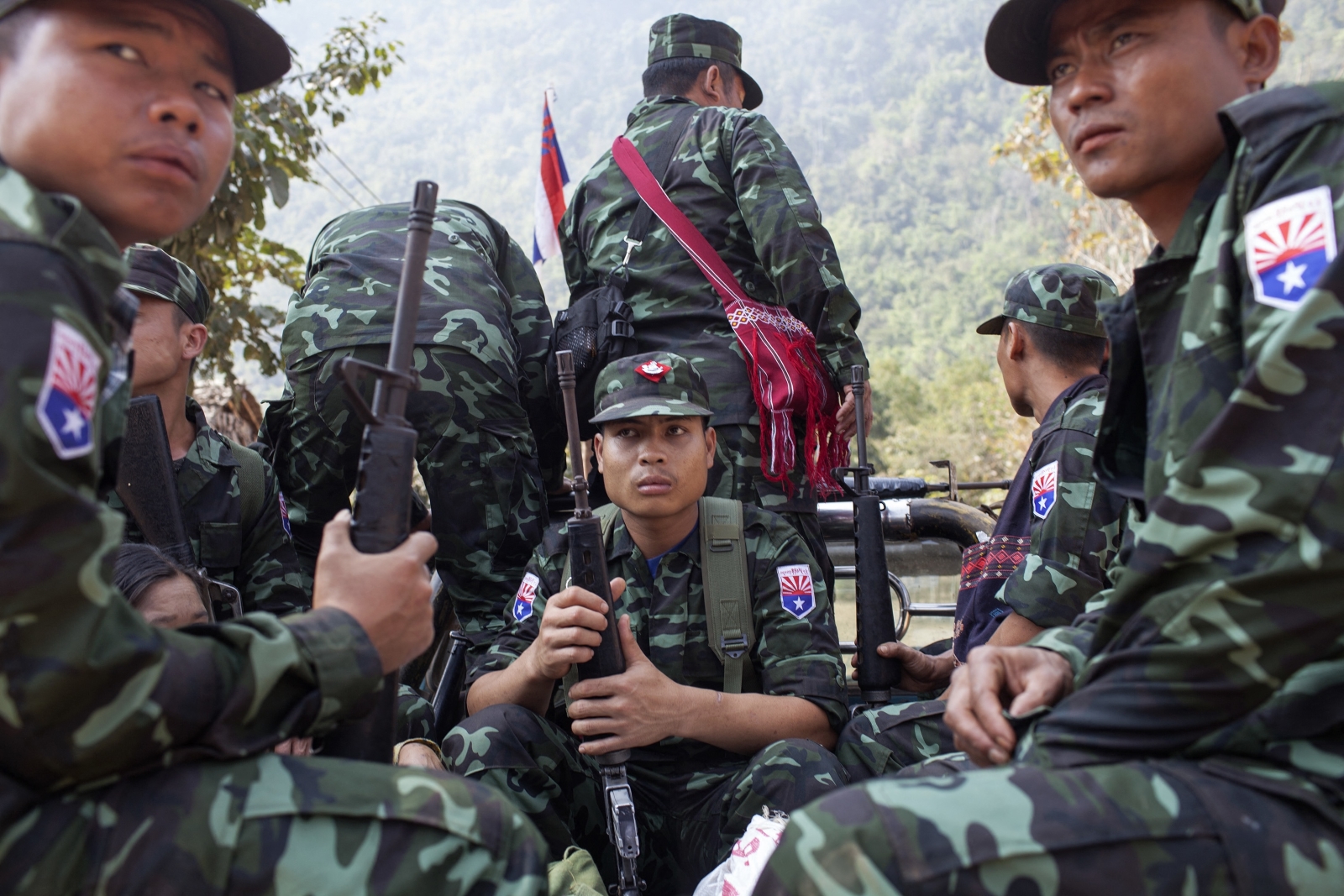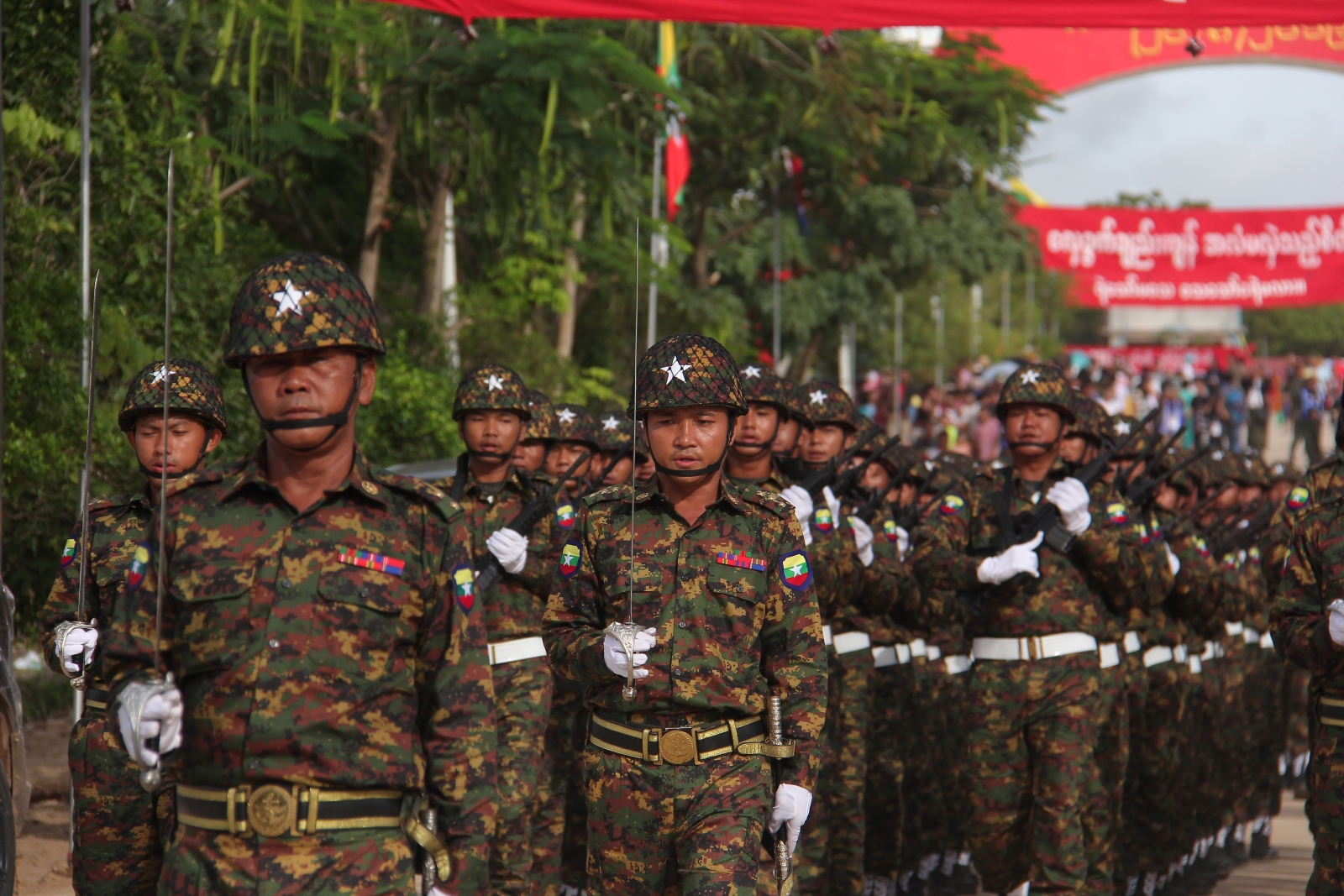At least one protester has been shot dead in northern Shan State, with reports of live rounds and grenades used on demonstrators in Kachin State, while bomb blasts continue in Yangon.
By AFP
Thousands of anti-coup protesters marched in Myanmar on Sunday, declaring a “spring revolution” with the country in its fourth month under a military regime.
Demonstrations kicked off early in commercial hub Yangon as activists called for a show of force. Youths gathered on a street corner before marching swiftly down the streets in a flash mob – dispersing soon after to avoid clashing with authorities.
“To bring down the military dictatorship is our cause!” they chanted, waving a three-finger salute of resistance.
Similar protests for “Global Myanmar Spring Revolution Day” were held in towns across Myanmar, alongside demonstrations in cities overseas.
Local media reported that the junta’s security forces were chasing protesters down and arresting them.
“They are arresting every young person they see,” a source in Yangon told AFP, adding that he was hiding at the time.
“Now I am trapped.”
Bomb blasts also went off across different parts of Yangon on Sunday. Explosions have been happening with increasing frequency in the former capital, and state media has blamed them on “instigators”.
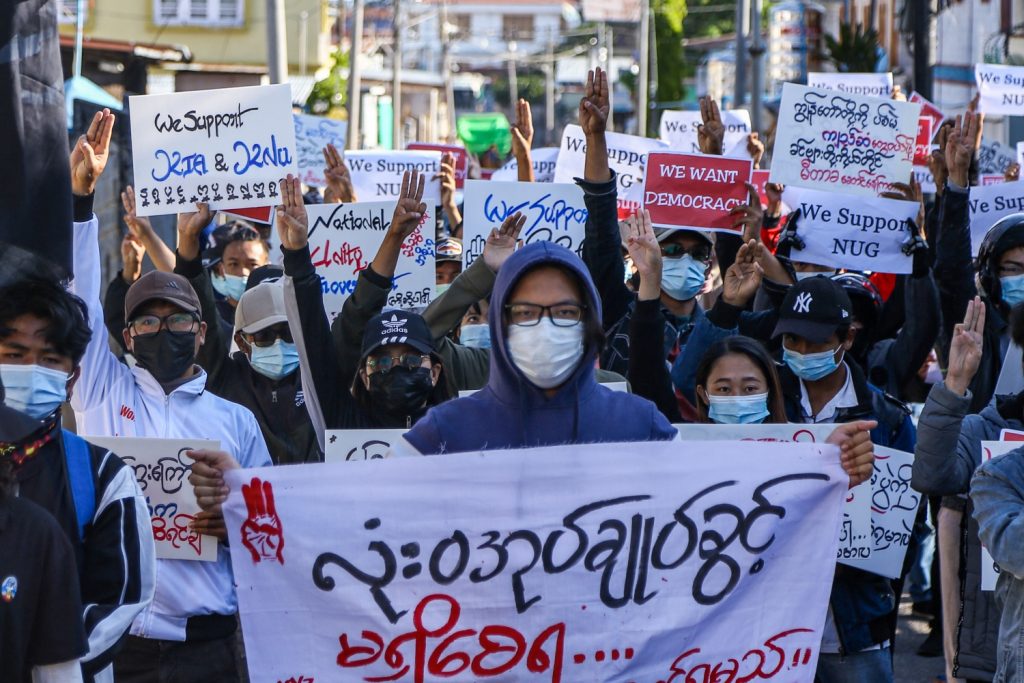
Bloodshed across the country
So far, security forces have killed 759 civilians, according to local monitoring group the Assistance Association for Political Prisoners.
The junta – which has labelled the AAPP an unlawful organisation – says 258 protesters have been killed, along with 17 policemen and seven soldiers.
Violence erupted again on Sunday by 10am in Hsipaw, when security forces opened fire on protesters, killing at least one.
“He was shot in the head and died immediately,” said one protester, who said he rushed to hide his friend’s body in case authorities tried to take it away.
“They are asking for his dead body, but we will not give them it… We will have his funeral today,” he told AFP.
In Kachin State, security forces also fired on protesters, even flinging grenades into the crowd.
A 33-year-old man was shot in the head, a fellow demonstrator told AFP, adding that many others were wounded in the attack.
“They all had to be treated at a hidden area. They could not go to the hospital for treatment or they would have been arrested,” the protester said.
Urban centres have become hotspots for unrest, especially in Yangon, where residents share videos of security forces beating up civilians on the streets.
Night raids and arrests are also common, with informers reporting to authorities about people suspected to be aiding the anti-coup movement.
State-run newspaper Mirror Daily reported that a woman accused of supporting the National Unity Government, formed by a group of ousted lawmakers and ethnic leaders in mid-April, was sentenced by military tribunal to seven years in prison with hard labour.
She had been arrested in Yangon’s North Dagon Township – which is currently under martial law – after police had raided her home and searched her Facebook and Telegram messaging apps.
Air strikes in the east
While violence continues in the cities, clashes have ramped up in northern Kayin State between the Karen National Union and the military, which has responded to the ethnic armed group’s seizure of several Tatmadaw bases with serious artillery power and air strikes in areas next to the Thai border.
Thai authorities announced that the Myanmar military fired rockets from the air to a KNU base on Saturday, and grenade launchers and sporadic gunfire could be heard throughout the day from Thailand’s bordering Mae Hong Son province.
A letter was sent last week to Myanmar counterparts calling for the military to “increase caution on air strikes to avoid it falling into Thai territories”, said Sunday’s statement from Mae Hong Son province.
“[This] could cause danger to Thais living on the border and affect the good relationship,” it said.
So far, more than 2,300 Myanmar nationals have crossed over for refuge.


